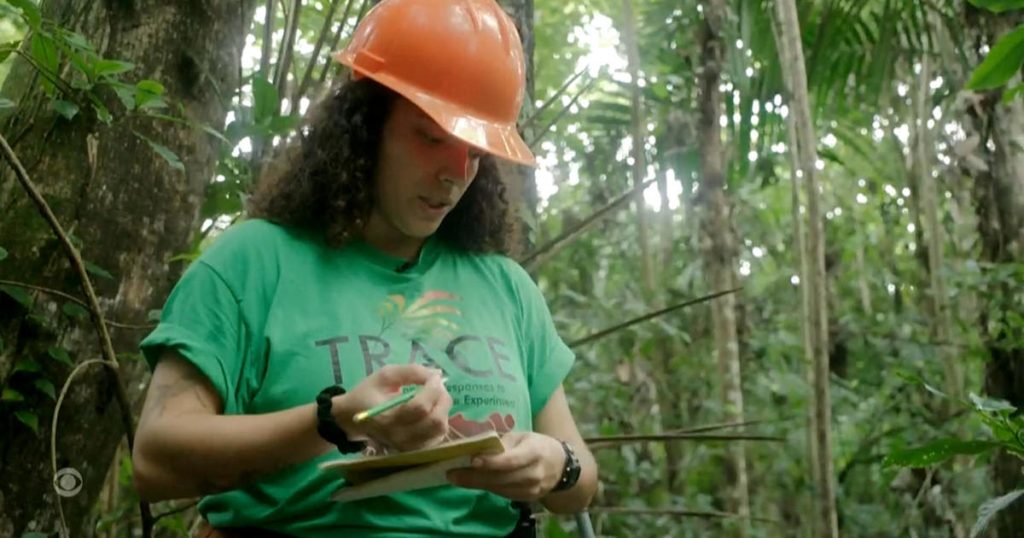Dr. Tana Wood, an ecologist with the U.S. Forest Service, is studying the potential impact of climate change on forests. She is running experiments to see what might happen if temperatures rise by seven degrees Fahrenheit, the worst-case scenario by the end of the century. One of the impacts she has observed is that forests could lose some of their ability to absorb carbon, which contributes to rising temperatures. This loss in carbon absorption could exacerbate the issue of global warming.
Forests play a crucial role in mitigating climate change by absorbing carbon dioxide from the atmosphere. However, if temperatures continue to rise due to climate change, forests may lose some of their ability to absorb carbon. This could create a feedback loop where rising temperatures lead to decreased carbon absorption by forests, which in turn contributes to further temperature increases. Understanding how climate change could impact forests is essential for developing strategies to mitigate its effects and protect these vital ecosystems.
Studies have shown that rising temperatures and changing climate conditions are already affecting forests around the world. In addition to losing their ability to absorb carbon, forests may also face challenges such as increased risk of wildfires, pest infestations, and loss of biodiversity. These impacts could have far-reaching consequences for both the environment and society, as forests provide essential ecosystem services such as clean air, water, and habitat for wildlife.
As climate change continues to worsen, it is crucial to address the potential impacts on forests and develop strategies to protect and preserve these valuable ecosystems. This may involve implementing forest management practices that enhance resilience to climate change, such as restoring degraded forests, planting diverse tree species, and reducing carbon emissions. It is also important to engage with local communities, policymakers, and stakeholders to raise awareness about the importance of forests and advocate for measures to combat climate change.
Dr. Tana Wood’s research highlights the urgent need to address the impacts of climate change on forests and take action to protect these vital ecosystems. By studying how forests may respond to future temperature increases, researchers can better understand the potential challenges and develop strategies to mitigate them. This work is essential for ensuring the long-term health and sustainability of forests in the face of a changing climate and increasing environmental threats.
Overall, climate change poses a significant threat to forests and the valuable services they provide. By understanding the potential impacts of rising temperatures on forests, researchers and policymakers can work together to develop solutions that mitigate these effects and protect these vital ecosystems. It is essential to prioritize forest conservation and sustainable management practices to ensure that future generations can continue to benefit from the many services that forests provide.


